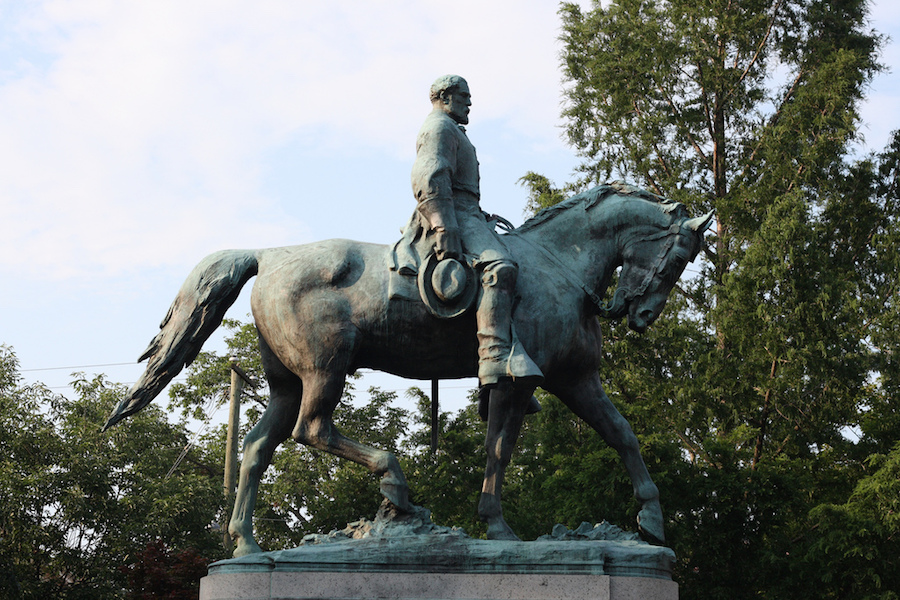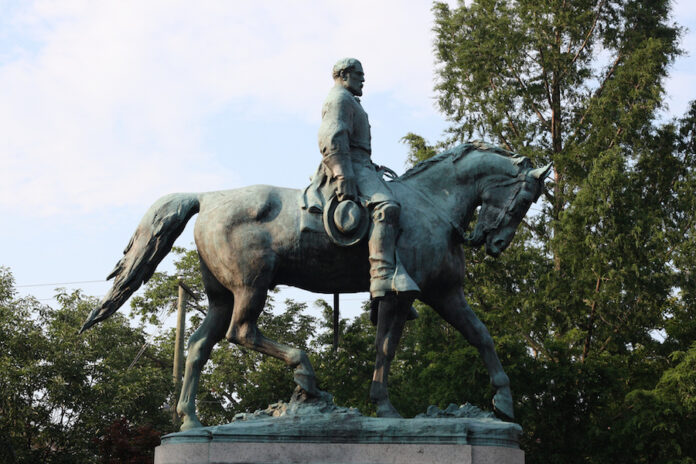
 There’s something deeply misguided about the clamor and rage from those opposing the removal of Confederate monuments from public spaces. It’s as if the monuments themselves were living vestiges of a bygone era of glory and nostalgic wonderment.
There’s something deeply misguided about the clamor and rage from those opposing the removal of Confederate monuments from public spaces. It’s as if the monuments themselves were living vestiges of a bygone era of glory and nostalgic wonderment.
This is, of course, exactly the stated reason for their existence in the first place. In this warped thinking, the Confederacy and the movement it espoused (spoiler alert: it’s not a very nice one) is bathed in patriotic light. President Trump tweeted his own thoughts on the subject, blasting the removal of “beautiful statues and monuments” and lamenting how it “ripped apart” the history of the United States.
His sentiment is echoed by many, and not just Trump supporters. Lost on Trump and the 62 percent of Americans opposing the removal of these statues is a great irony. Their fierce defense of such artwork — glorifying men who promoted slavery and violently rejected the democratic experiment of the United States — ignores how these men ripped apart and almost destroyed the union themselves.
Robert E. Lee, Jefferson Davis, Alexander H. Stephens and their fellow compatriots were traitors. Statues and monuments glorifying them should be relegated to museums instead of parks and university entry halls — hell, anyone ever heard of a university museum? They decided to fight against us instead of fighting to improve us. These men betrayed the founding creeds of our country and waged war.
The leaders of the Confederacy embraced open conflict to escape the domain of the United States. Beginning with the lowering of the American flag at Fort Sumter, the Confederate movement desecrated what this country stands for. It rejected the name-brand United States and adopted the Confederate States of America.
How is venerating the statues of these leaders — many erected in the Jim Crow era with dubious intentions — even remotely patriotic?
If the claim that Robert E. Lee and company were traitors to the United States appears offensive, perhaps some modern context will erode that notion. If American citizens today waged open warfare against the government of the United States, most would consider that both legal and moral treachery. There are recent examples of this involving Islamist radicals.
Adam Gadahn, one of the more well-known American defectors to al-Qaeda, was indicted by a federal grand jury for treason in 2006 before his vaporization by drone strike in 2015. The reason for his indictment? Gadahn “knowingly adhered to an enemy of the United States,” among other (relatively dull) charges.
The parallels between a man like Gadahn and, say, Robert E. Lee or Jefferson Davis are quite clear. They were enemies of our country who manifested their resistance by waging war against the legitimate government of the United States. Lee and the rest of the Confederate leadership therefore check the first box for treason. The Confederates adopted a different flag and stamps, symbols of an alternative government in brazen defiance to the United States. Check box number two.
And like Gadahn, Jefferson Davis — the president of the Confederacy — expressed heartfelt loathing toward his former country. “My only wonder is that we consented to live for so long a time in association with such miscreants and have loved so much a government rotten to the core. Were it ever proposed again to enter into a Union with such a people, I could no more consent to do it than to trust myself in a den of thieves.” Check box number three.
It’s time to leave Confederate statues to the dustbin of history — or at least the back of a university museum.
Written by: Nick Irvin — ntirvin@ucdavis.edu
Disclaimer: The views and opinions expressed by individual columnists belong to the columnists alone and do not necessarily indicate the views and opinions held by The California Aggie.









